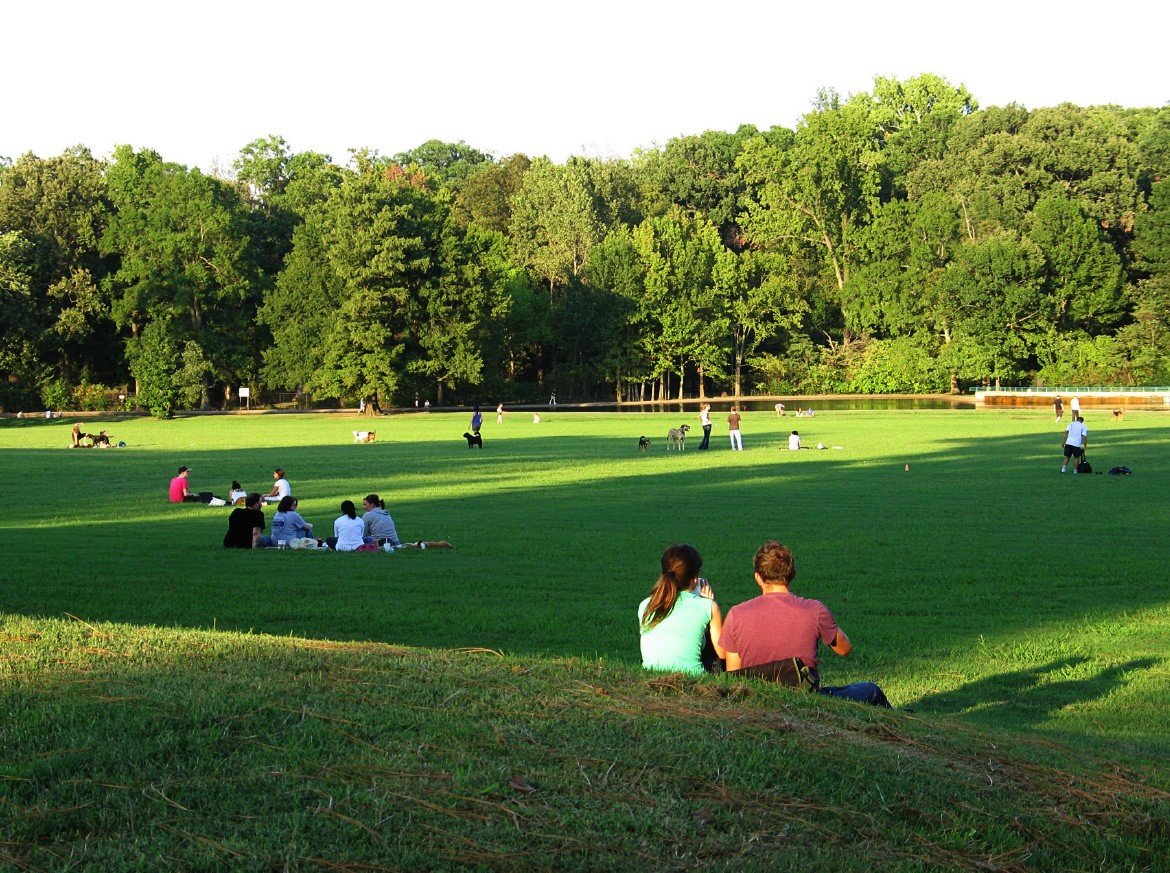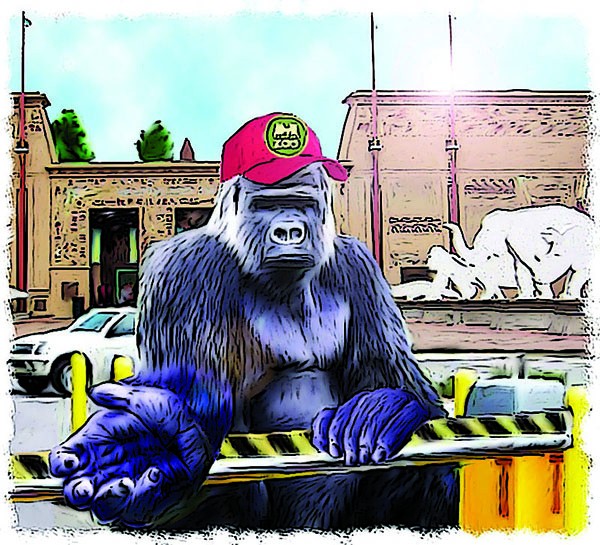 Overton Park Conservancy
Overton Park Conservancy
It’s time to move forward and end parking on the Overton Park Greensward — forever. It’s past time, actually, and the neighborhoods and groups that make up the Overton Park Alliance and thousands of other supporters of Overton Park want to see the Memphis City Council accept $1 million in funding from the zoo and the Overton Park Conservancy at its June 20th meeting and move this process forward.
Overton Park, established in 1901, is a 342-acre park in the heart of Memphis with more than 100 acres of rare old-growth urban forest. The park was catapulted into national significance in the 1970s, when it was saved by the U.S. Supreme Court from government plans to bisect it with Interstate 40, leading to permanent nationwide protection of park land from highway construction.
The park suffered from years of neglect after that, especially after the City Council abolished the Memphis Park Commission in 2000. The Memphis Zoo’s occasional use of the Greensward for overflow parking increased in frequency over the years. The Overton Park Conservancy (OPC) was formed in 2011, funded in part by the city. The OPC has breathed new life into the park in a few short years. Overton Park is now safe, clean, and heavily used by diverse Memphians from all over the city.
In early 2016, the Memphis Zoo removed two dozen trees from the Greensward and sued OPC, contending the zoo had rights to the entire Greensward. Mayor Strickland arranged for the zoo and OPC to engage in mediation. While the mediation was pending, large protest gatherings on the Greensward demonstrated the public’s strong desire to end parking in that space. Nevertheless, the council rushed through a surprise resolution giving most of the Greensward to the zoo and then moved toward passing an ordinance making the change permanent.
When the mediation ended in June 2016 with no agreement, Mayor Strickland stepped in with a compromise solution that became the basis for an agreement between the zoo and OPC. The City Council largely confirmed the agreement in a resolution in July 2016. That resolution requires reconfiguration of the zoo’s parking lot, plus 415 additional parking spaces. This will result in the loss of some park land on the northern edge of the Greensward and will allow the zoo to continue parking on the Greensward until construction is complete. That resolution also requires OPC and the zoo to share the cost of the zoo’s parking solution equally, despite the fact that OPC manages a free park, generates little revenue, and is funded primarily by philanthropic and membership contributions — and that the zoo will keep all revenue from the new parking lot.
In 2016, the city established a steering committee to guide the project that includes representatives of the zoo, OPC, the Overton Park Alliance, the public, and various city departments. (The meetings of the committee are open to the public; a website [http://www.memphistn.gov/Government/ExecutiveDivision/OvertonParkParking.aspx] provides information on the process, including a timeline.) In February, the committee selected Powers-Hill Design (PHD) to design and lead the project.
In April, the council was asked by the steering committee to accept $250,000 from both the zoo and OPC to fund the project’s design. The zoo threatened to pull out of the process unless OPC agreed to contribute half of the entire cost of the project up front. The council voted in favor of the zoo and mandated that both the zoo and OPC demonstrate they had $1 million to contribute to the project by June 11th.
With the support of over 1,000 donors and contributors from 40 states and 28 Memphis zip codes, including large and small donors (and some generous zoo board members), OPC has met the enormous fund-raising burden placed on it by the council and raised the required $1 million in two short months.
It’s time for the council to accept this funding and let the city-appointed steering committee’s process to go forward. It’s time to quit throwing roadblocks in the way of this painstakingly crafted solution. The Overton Park Alliance and other park supporters remain committed to monitoring the design and construction of the zoo’s parking solution to achieve the best possible solution, not only for the Memphis Zoo, but for Overton Park as a whole.
Mary Wilder is a member of the Overton Park Alliance, which is comprised of the Free Parking Brigade, Humans of Overton Park, Memphis Heritage, Midtown Action Coalition, Midtown Memphis Development Corporation, Park Friends, Inc., Physicians for Urban Parks, Stop Hurting Overton Park (Facebook group), and 10 Midtown neighborhood associations.

 Greg Cravens
Greg Cravens  Andrew J. Breig
Andrew J. Breig  Clewisleake | Dreamstime.com
Clewisleake | Dreamstime.com